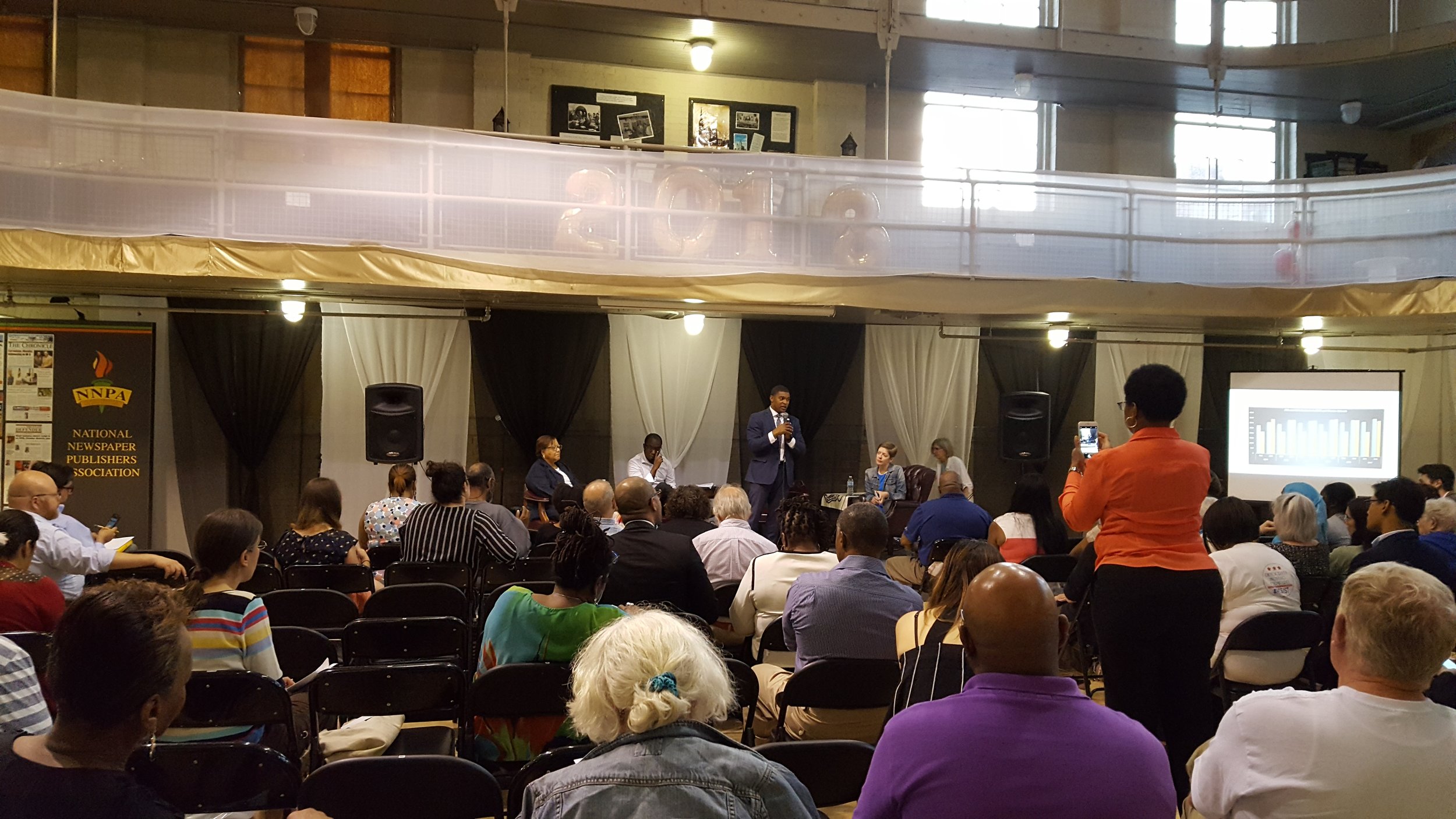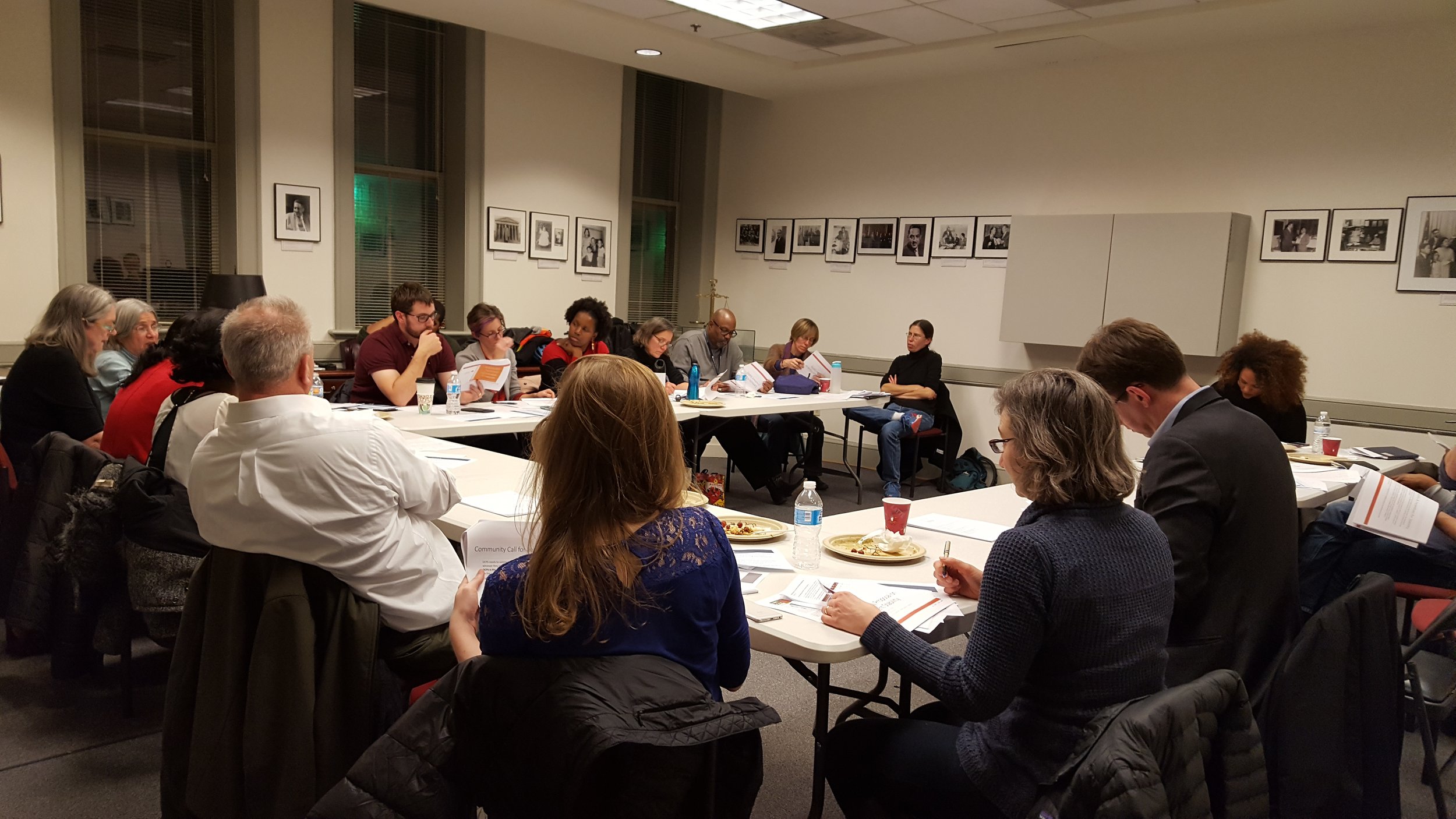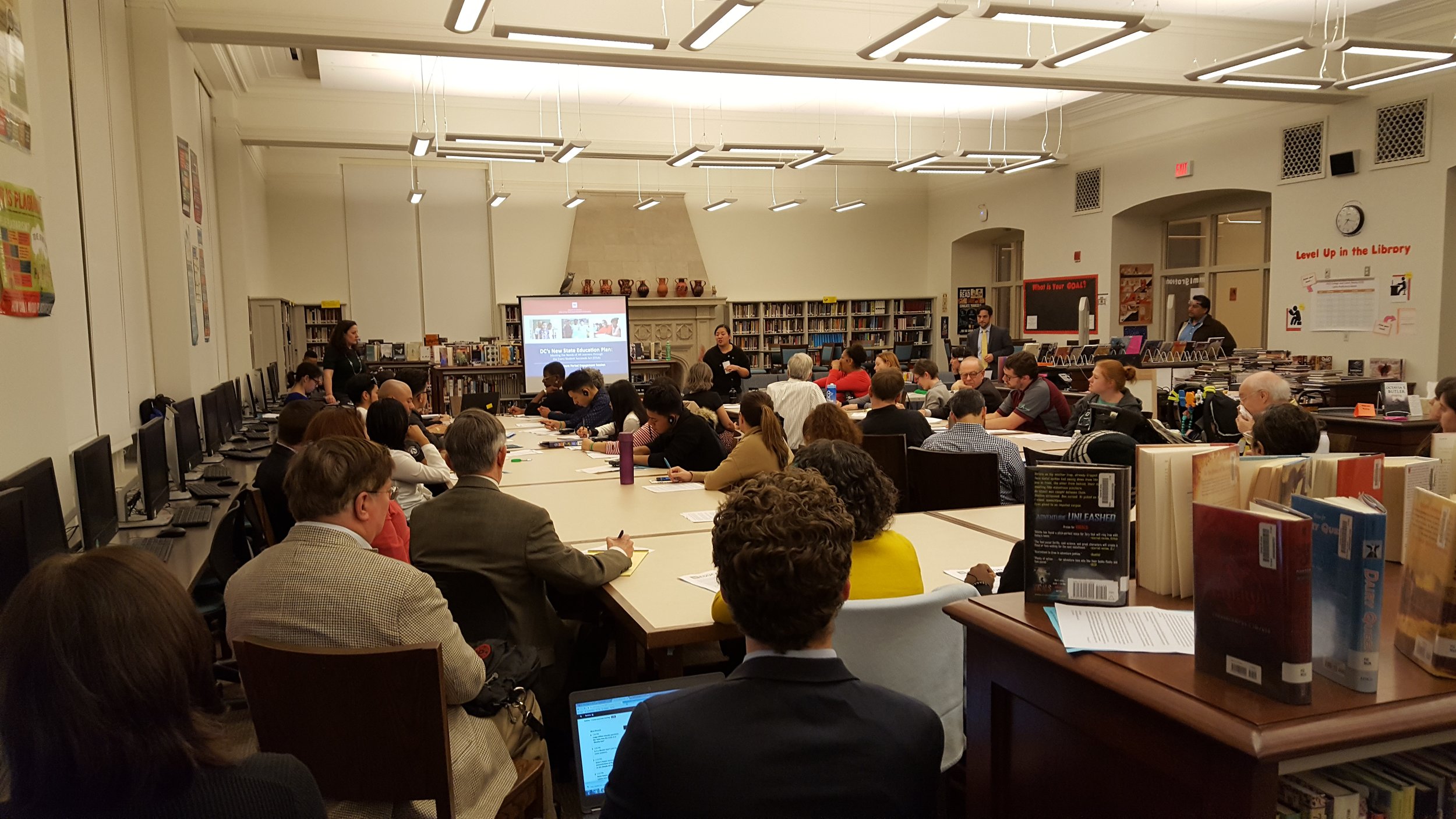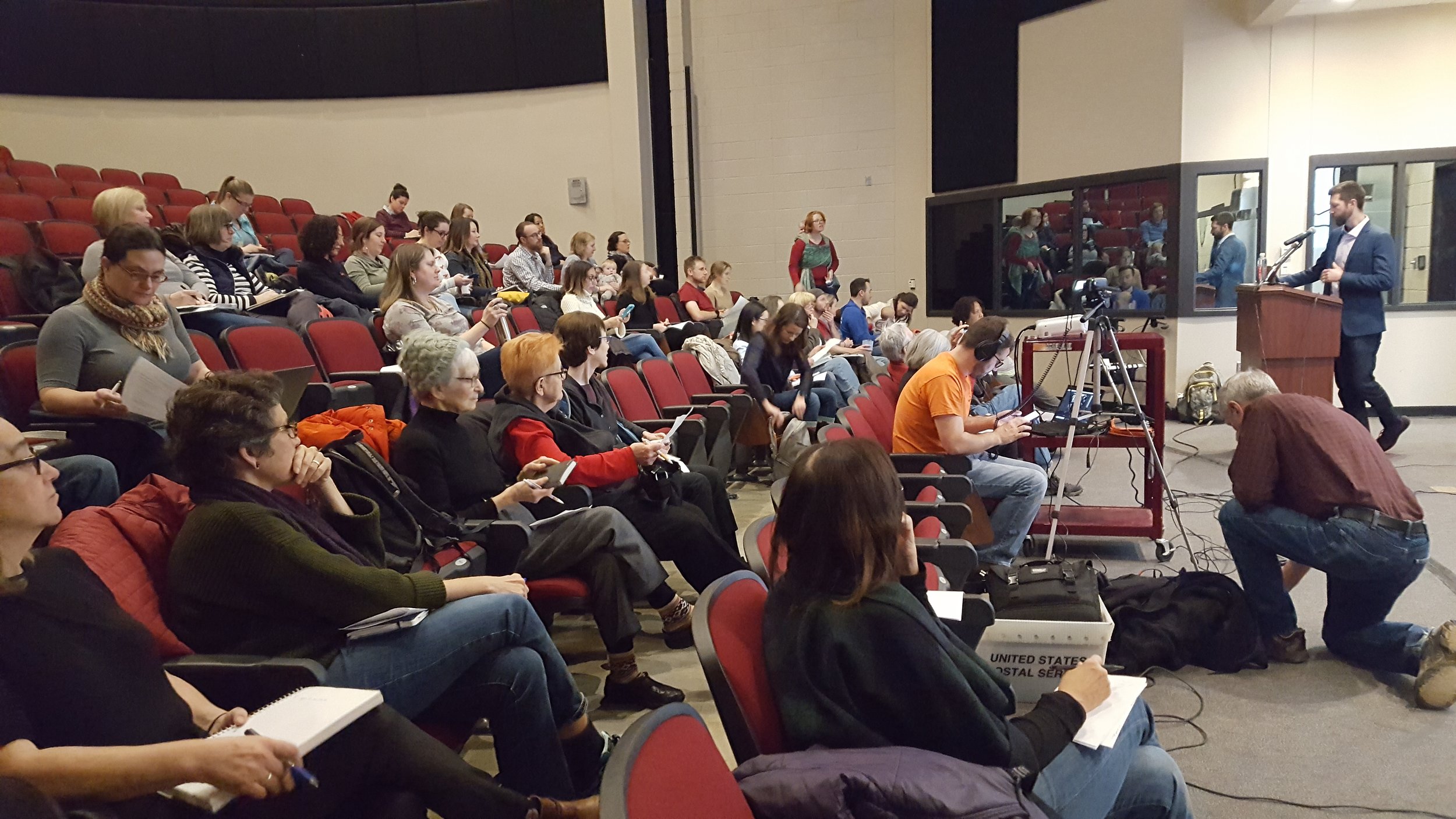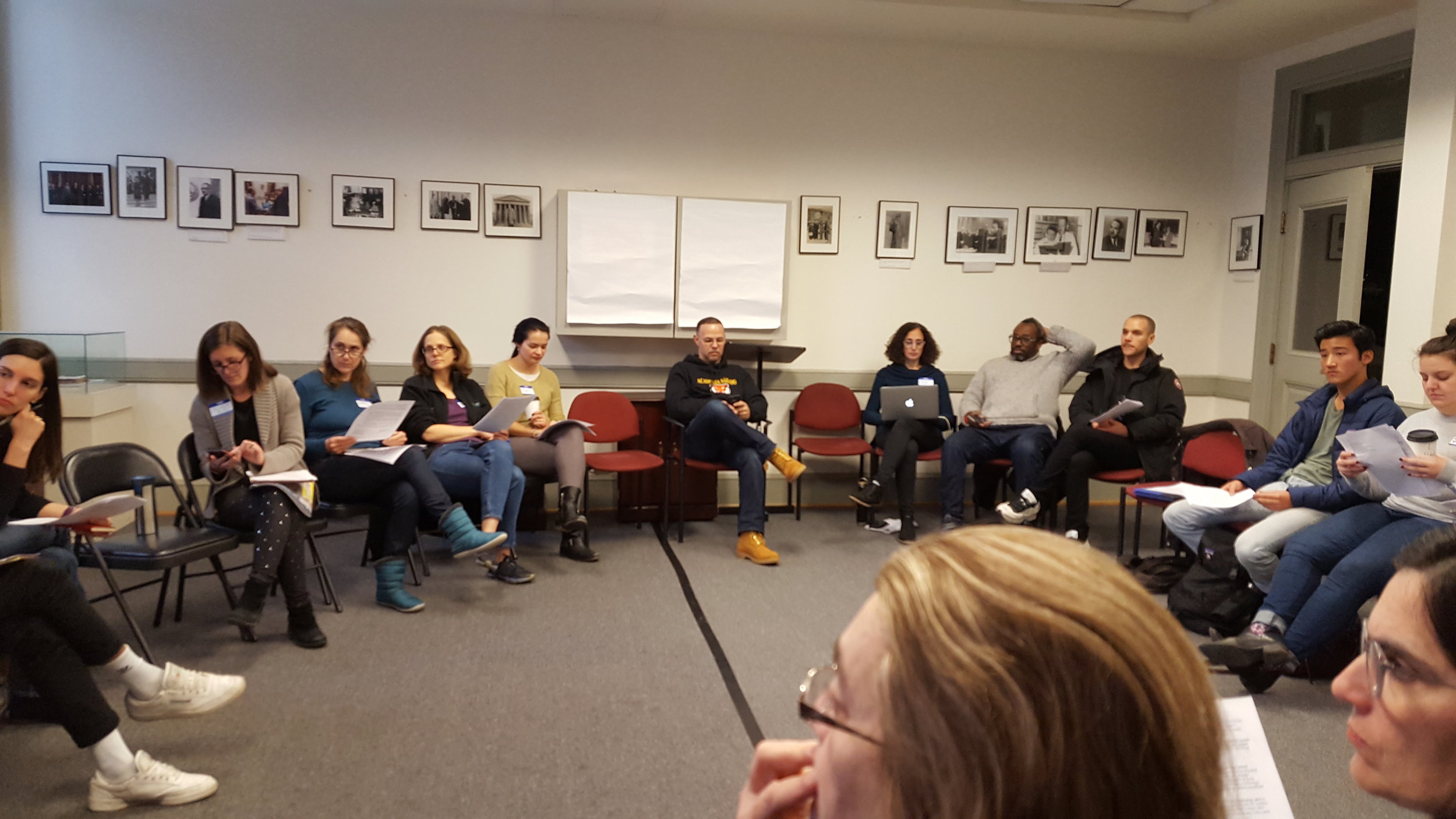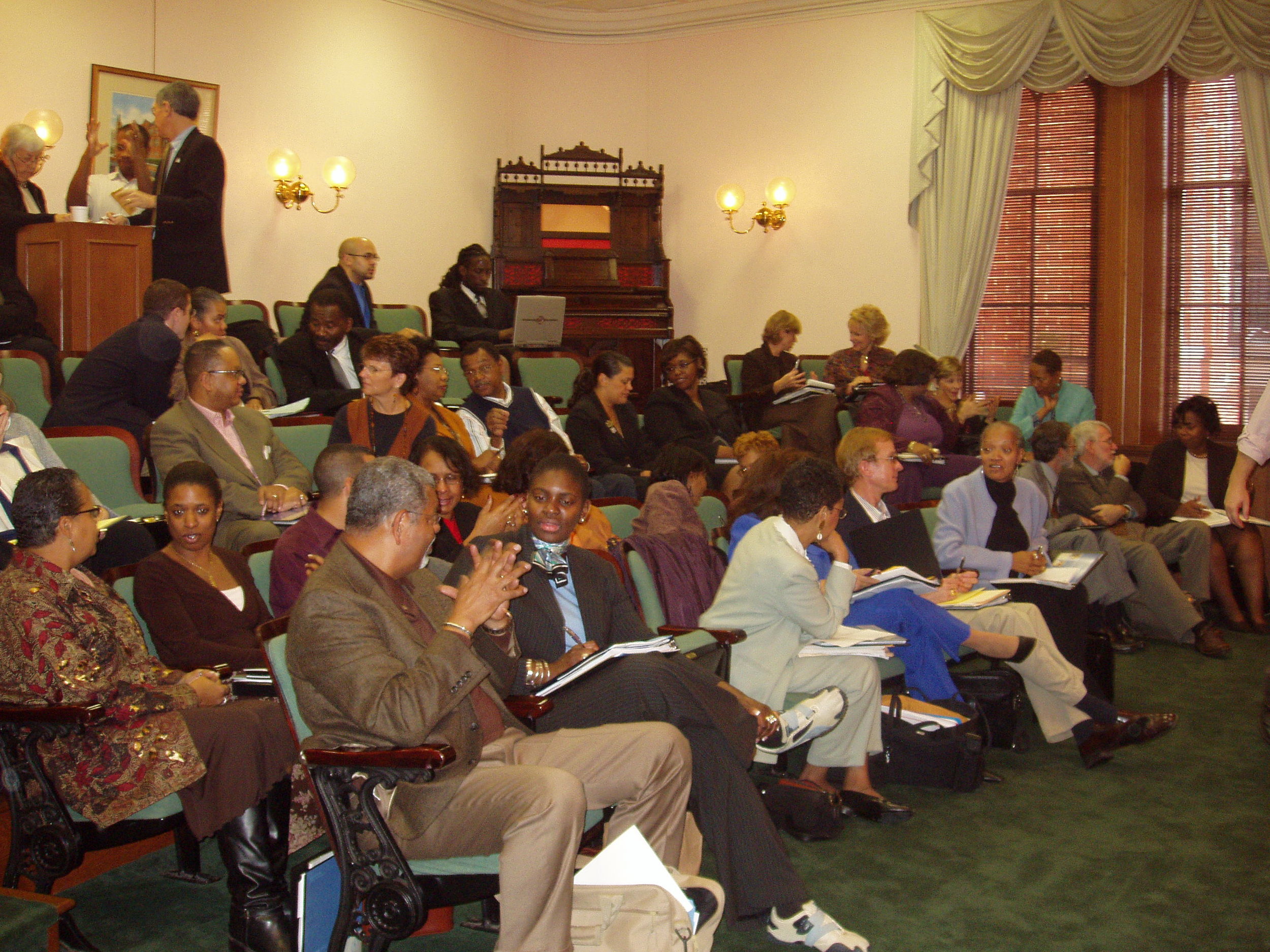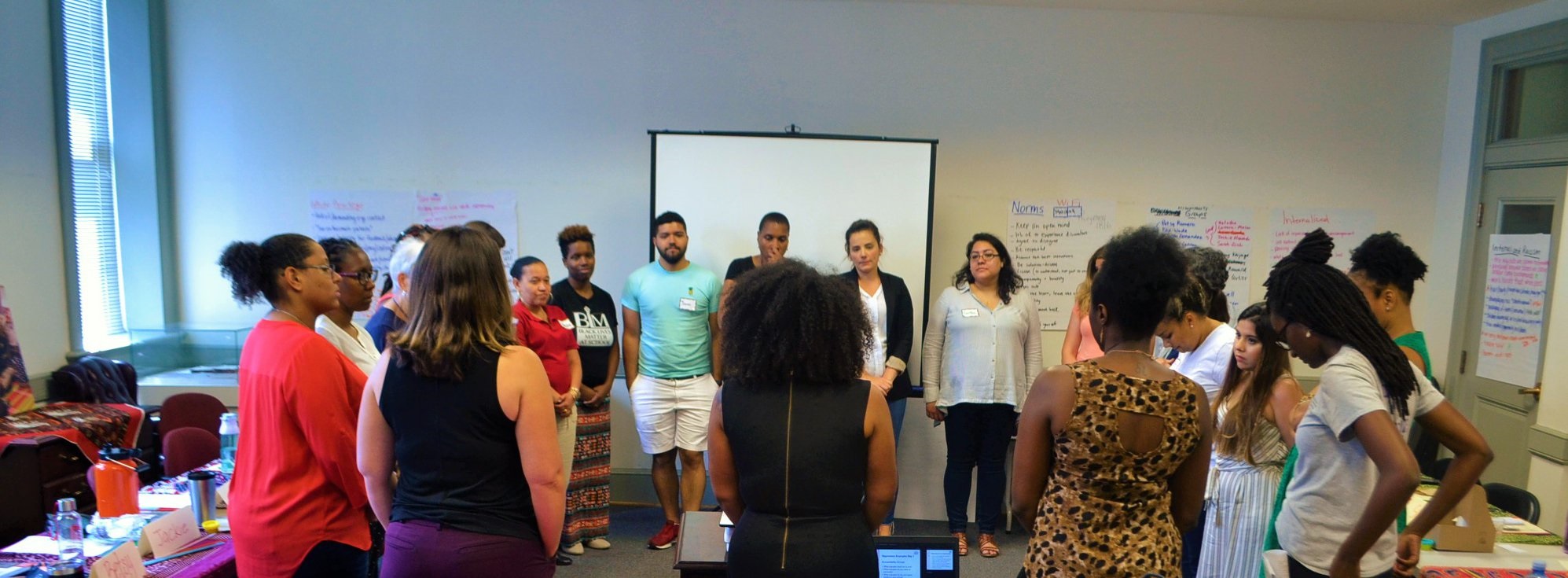Alpert Ward 2 Ed Council Testimony on B24-0570 and B24-0571
/Testimony by David Alpert
President, Ward 2 Education Council
B24-0570, Schools First in Budgeting Amendment Act
B24-0571, Schools Full Budgeting Amendment Act
January 20, 2022
Good morning, Mr Chairman and members of the Council. My name is David Alpert, and I am
president of the Ward 2 Education Council and a parent of a DCPS third grader and future
kindergartener.
Thank you for your attention to this issue of school budgeting and for introducing these bills. The
first question before us is: whether the council should legislate the formula for determining
individual school budgets.
As a general supporter of executive discretion, in theory, I think budgets should be formed by
DCPS with input from principals and parents. But the way schools cower in fear of sudden cuts
even during flush times for this city does not work for our schools. Further, the process of rolling
out a new budget model over the last year and beyond is so egregious in its secrecy and
contempt for the council and for parents that the council must act.
I’d much prefer to work on issues collaboratively with city officials, as opposed to oppositionally.
That was my strategy for transportation and planning advocacy in the past, and I found it to be
an effective one. We want the same things - successful and equitable public education serving
the children of DC.
I have been baffled, therefore, that DCPS leaders have said they have a new budget model that
was, as one described it, “a cake that was baked” years ago, but delayed because of the
pandemic. But DCPS leaders will not tell us what the cake looks like. When I pick up my
daughter’s birthday cake, I certainly want to see if the decorator spelled her name correctly, and
not have to wait until the party begins.
Yet DCPS officials have refused to answer specific questions. They rebuffed repeated requests
from the ward education councils and other advocates to provide a direct comparison between
the current Comprehensive Staffing Model and the new model. Mr. Francois attended two ed
council meetings and yet organizers still felt in the dark. And, worst of all, DCPS outright refused
last week to provide that comparison, despite being requested in a letter signed by every single
councilmember.
I’ve participated in many hearings where residents argued they hadn’t been consulted. But in
almost all of the transportation or planning hearings I attended, officials had made good faith
efforts to be forthcoming with residents… or, perhaps, just had to move with haste and hadn’t
had time to talk to people. Here, DCPS officials seem to be insinuating that we’ll hate their new
model and so they won’t tell us what it looks like until the last minute, at which point it will be
much harder to influence it.
I’d like to love the new model. I hear it’s about equity and I support that. If DCPS simply said
they were planning to ramp up funding to schools with high at risk populations, for instance, I’d
be enthusiastic - even if my child’s school isn’t one that would see more money. I’d want to ask
to avoid cuts at other schools, but I would be glad to see us do more for our children furthest
from opportunity.
But instead, we just see a mysterious calculation which seems to suggest some schools will win
and some will lose based on enrollment, perhaps with small schools losing the most for no
articulated reason, and other unanticipated changes.
Already, principals and LSATs face the prospect of staff cuts year after year, to classroom
teachers, or aides, or inner core specials, or mental health professionals, and then often those
cuts get reversed. But it’s too late to retain good staff members who seek more stable school
jobs.
Our city has had budget surpluses for years, thankfully. Through one of these bills or a hybrid,
let’s ensure that school communities don’t have to live with a sword of Damocles constantly over
them, at least not as long as the city budget is strong.
On the specifics of the legislation, I have a few particular comments about the Schools First in
Budgeting Act.
First, I would suggest adding clarity about the definition of enrollment that would, as the act
provides, "require one or more additional classroom teachers" or "warrant elimination of a
classroom teacher.” Without specifics of what triggers those provisions, DCPS might simply be
able to trigger the provision when it wants to and never when it doesn’t, while schools would
lack the predictability this bill seeks to create.
Second, the law provides that the budget can be cut if enrollment drops so as to “eliminate a
classroom or warrant elimination of a classroom teacher.” My reading is that in such a case,
DCPS could then cut the budget by any amount it wished, including cutting other services or
programs. If this isn’t what you meant, then it could read that in such a class only classroom
teachers are cut, or limit other cuts in some way, such as proportionally. But, if left as is, then
schools which see declining enrollment would be as vulnerable as they are now, because losing
just one class worth would essentially exempt the school from all of the protections in the bill.
Finally, I recommend dropping the provision that would switch school budgets to use actual staff
costs instead of average ones. A brand new 10-month teacher with a bachelor’s made $56,313
in FY 2019 and a 21-year veteran with a Ph.D. $116,408 - more than double.1 A principal facing
budget cuts, or a new principal trying to turn around a struggling school, may well see it much
more desirable to have two adults, even inexperienced ones, over a veteran teacher. DCPS
does not have tenure or seniority preference, which affords flexibility, but the average cost
1 ET-15 FY 2019 Pay Schedule, https://dcps.dc.gov/node/1294871
accounting is therefore very valuable to ensure there’s no incentive to replace veterans with
twice as many newer teachers.
Such a switch is not necessary. School budgets will continue to flow through the city
government as they have, even if the amounts are more narrowly prescribed. A school could
simply continue to have a budget it uses for staffing and then the actual amount of money
coming from the treasury isn’t exactly identical.
I know that if any bill is passed, it will not happen in time to affect the coming year’s budgets. I
hope the council will, however, use its power in the regular budget process to ensure that
schools don’t lose staff or programs this year. If schools with the greatest learning loss can be
further given extra resources, while other schools can maintain their current staffing levels and
programs, that would be all the better.
I wish DCPS were having this dialogue and trying to craft a new budget framework that really is
predictable, equitable, and transparent, so the council did not need to. But instead, they have
chosen to rebuff parents and rebuff you as well while not apparently solving the problems we
face. And so, the council should both make clear that refusing to answer questions is
unacceptable, and further to set a better policy that actually achieves DCPS’ stated goals.
Thank you.
